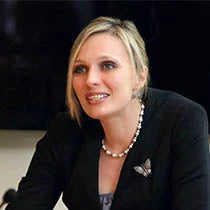
What do you imagine when you hear the words “capacity development”? Most development professionals associate capacity development with training, seminars and perhaps study tours. Most of the countries the World Bank works in require a significant boost in their capability to implement policies, programs and projects, especially in countries supported by the Bank’s fund to the poorest, International Development Association (IDA).
For training to be sustainable and have high impact, it should be targeted to a particular public sector problem, and coupled with initiatives to improve organizational and institutional capacity.
There is now a model of capacity development via knowledge exchanges. The World Bank Knowledge and Research Hub in Malaysia specializes in bringing the country’s development experience to other countries, both in the ASEAN and globally. This works best when the Bank has an existing engagement in a country, so that the knowledge exchange can be tailored to a particular issue that the government is trying to solve.
Using this approach, the World Bank Governance and Macro Fiscal Management teams conducted a knowledge exchange between Malaysia and Lao PDR.
Our Lao counterparts are grappling with how to improve the management of the civil service, contain their wage bill, and create a more performance-oriented civil workforce. The wage bill currently represents an estimated 8.4 percent of GDP, which is significantly higher than its ASEAN peers. At the same time, public sector employment reached an estimated 2.8 percent of the population, which is well above the 1.1 percent global average for developing countries. With the current fiscal challenges, including a fiscal deficit of around 6 percent of GDP in fiscal year 2015-2016 and a public debt increasing to around 70 percent of GDP, such a large wage bill is unlikely to be affordable.
The World Bank is providing advice in this area through its ongoing Public Expenditure Analysis, and during this process, the Lao PDR government specifically requested to learn about how other countries have dealt with similar problems.
The World Bank team in Vientiane reached out to the Kuala Lumpur-based colleagues to see if Malaysia could offer a relevant example for Lao PDR. Over the past decades, Malaysia has instituted a number of reforms focused on increasing performance orientation of its civil service. It has also introduced measures such as early exit for civil servants to help constrain the high wage bill. Today, Malaysian authorities continue to face many issues similar to those of their Lao counterparts, while having experimented with various reform measures and gleaned valuable lessons.
To better understand the civil service reform issues in Lao PDR, the World Bank’s Malaysia-based team met with the team in Vientiane. They then worked with the Malaysian Public Service Department to identify the right officials to travel to Vientiane to share their experience with the Lao PDR Ministry of Home Affairs (MOHA) and Ministry of Finance (MOF), as well as to adapt their presentations to suit the Lao context.
The knowledge sharing workshop took place in Vientiane with about 40 government officials actively participating. Three Malaysian officials presented Malaysia’s experience in reforming pay and compensation, job analysis, performance appraisal, and human resource management information systems, while the World Bank team provided global references and helped moderate the workshop.
The energy in the room was palpable. There were many probing questions, follow-ups, and animated exchanges. The value of this exchange was the wealth of knowledge shared by actual practitioners who faced similar challenges in the past and were able to offer lessons of how to tackle them – and which pitfalls to avoid.
As a next step, the World Bank discussed a follow-up knowledge exchange visit by the Malaysian officials that would go even deeper: a week of coaching where they would work with the Lao counterparts on specific issues such as developing job descriptions or rolling out the HRMIS to subnational levels. Moving forward, the World Bank will now be able to discuss a more detailed plan in order to continue to support the government of Lao PDR on its civil service compensation and performance agenda.
The proof will ultimately be in the ability of Lao PDR to adapt these lessons to their own civil service reforms. These results will take time to materialize. However, this particular event was successful in that it facilitated a very targeted, problem-driven knowledge exchange of the experience from Malaysia to Lao PDR. This generated excitement to build capacity for reform, as well as create momentum for concrete next steps.




Join the Conversation